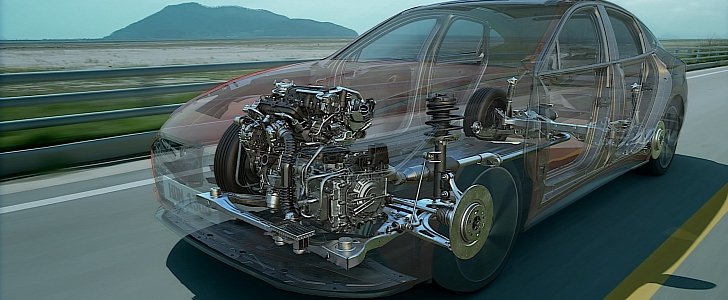As most carmakers in the industry are trying to improve fuel consumption and emission levels by turning electric, there are a few left still striving to better the good-old combustion engine. From time to time, these few launch exciting new engines, as was the case with Mazda’s Skyactiv-X, and now with Hyundai-Kia’s Smartstream with CVVD technology.
Presently, there are a number of valve control technologies on the market, working to better an engine’s performances and reduce emissions. The most common are the Continuously Variable Valve Timing (CVVT) and Continuously Variable Valve Lift (CVVL).
Both work toward adjusting the timing of valve opening and closing, as well as the depth of such actions to reach the above-mentioned goals. And they work, too, but there’s room for improvement, the South Koreans seem to believe.
None of the two technologies can control the period of time a valve stays open, let alone while adjusting to dynamic driving situations. So Hyundai-Kia envisioned the Continuously Variable Valve Duration (CVVD).
This system allows for two distinct durations of the valve’s operation. When the car is traveling at a constant speed, the intake valve opens from the middle to end of the compression stroke. When high speeds are detected, the intake valve is closed at the beginning of the compression stroke, so there is more air left inside the cylinder to blow up.
This MO should allow for a performance increase of 4 percent over a similar engine without CCVD, 5 percent more fuel efficiency and a reduction in emissions of 12 percent.
The Koreans call this technology a world first, and plan to deploy on the cars of the group as part of the Smartstream G1.6 T-GDi engine. They did not say when this will happen.
“The development of the CVVD technology is a good example how Hyundai Motor Group is strengthening our powertrain technology,” said in a statement Albert Biermann, Hyundai head of research.
“We will continue our innovation efforts to bring forth paradigm shifts and ensure sustainability of our business model.”
Both work toward adjusting the timing of valve opening and closing, as well as the depth of such actions to reach the above-mentioned goals. And they work, too, but there’s room for improvement, the South Koreans seem to believe.
None of the two technologies can control the period of time a valve stays open, let alone while adjusting to dynamic driving situations. So Hyundai-Kia envisioned the Continuously Variable Valve Duration (CVVD).
This system allows for two distinct durations of the valve’s operation. When the car is traveling at a constant speed, the intake valve opens from the middle to end of the compression stroke. When high speeds are detected, the intake valve is closed at the beginning of the compression stroke, so there is more air left inside the cylinder to blow up.
This MO should allow for a performance increase of 4 percent over a similar engine without CCVD, 5 percent more fuel efficiency and a reduction in emissions of 12 percent.
The Koreans call this technology a world first, and plan to deploy on the cars of the group as part of the Smartstream G1.6 T-GDi engine. They did not say when this will happen.
“The development of the CVVD technology is a good example how Hyundai Motor Group is strengthening our powertrain technology,” said in a statement Albert Biermann, Hyundai head of research.
“We will continue our innovation efforts to bring forth paradigm shifts and ensure sustainability of our business model.”




